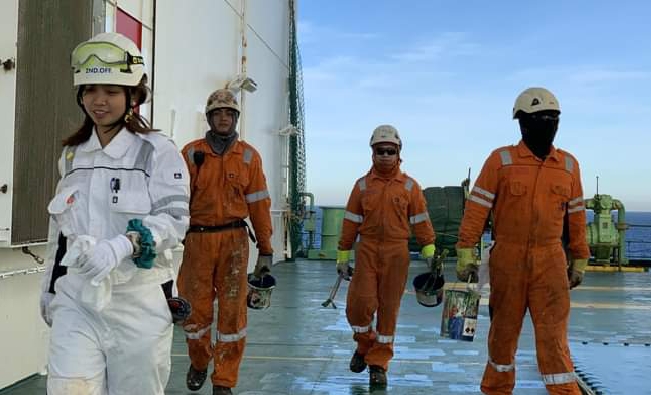ITF Inspectors Recover $57.16m In Unpaid Seafarers Wages, Inspects 9,530 Ship In 2023
By Roland Ekama
The International Transport Workers Federation ITF’s global network of inspectors recovered a shocking US$57,161,779 in unpaid wages for seafarers in 2023, as the ITF also recorded the highest level it has ever seen of abandoned vessels (129) and abandoned seafarers (1,983).
ITF in a statement noted that inspectors completed a total of 9,530 ship inspections and worked on 1,188 cases where seafarers requested assistance.
As part of this work, the inspectors recovered US$57,161,779 in unpaid wages for seafarers throughout the year.
The ITF has a global network of more than 125 inspectors, based in over 110 ports in 55 countries worldwide.
Inspectors, many of whom are former seafarers or dockers, police ships that have no collective bargaining agreement and enforce the agreements on ships that do, with those agreements covering more than 357,000 seafarers working aboard flag of convenience vessels.
Inspectors are trained to look for exploitation, overwork, and signs of forced labour and modern slavery.
On many vessels, they have the right to examine wage accounts, employment contracts, and to review recorded hours of work and rest.
- Advertisement -
The inspectors completed a total of 9,530 ship inspections and worked on 1,188 cases – instances where an inspector assisted a seafarer without boarding a vessel – during the year, spanning every region of the world.
ITF Inspectorate Coordinator Steve Trowsdale said: “The number of cases and amount of backpay is worrying, but we couldn’t be prouder of the work undertaken by our inspectors every day, all around the world. They’re an emergency service for seafarers, always ready to do what they can to stand up for seafarers’ rights and hold exploitative shipowners to account.
“But the sad reality is that the increasing amount of work our inspectors are doing demonstrates just how much workers’ rights are under attack on ships right now.”
The ITF has a global network of more than 125 inspectors, based in over 110 ports in 55 countries worldwide. Inspectors, many of whom are former seafarers or dockers, police ships that have no collective bargaining agreement and enforce the agreements on ships that do, with those agreements covering more than 357,000 seafarers working aboard flag of convenience vessels.
Inspectors are trained to look for exploitation, overwork, and signs of forced labour and modern slavery. On many vessels, they have the right to examine wage accounts, employment contracts, and to review recorded hours of work and rest.
“The significance of clawing back more than US$57.1 million in owed wages can’t be understated, especially when so many seafarers are the breadwinners for their families back home,” said Trowsdale.
“Our inspectors are out there every day sending the message that the ITF and its affiliated unions will never let abuses of seafarers’ rights go unchecked.”
Under the International Labour Organisation’s (ILO) definition of abandonment, a seafarer can be classed as ‘abandoned’ when they are unpaid for two months.
Any non-payment of wages should be seen as a potential sign that a shipowner could be about to cut its crew loose.




Comments are closed.